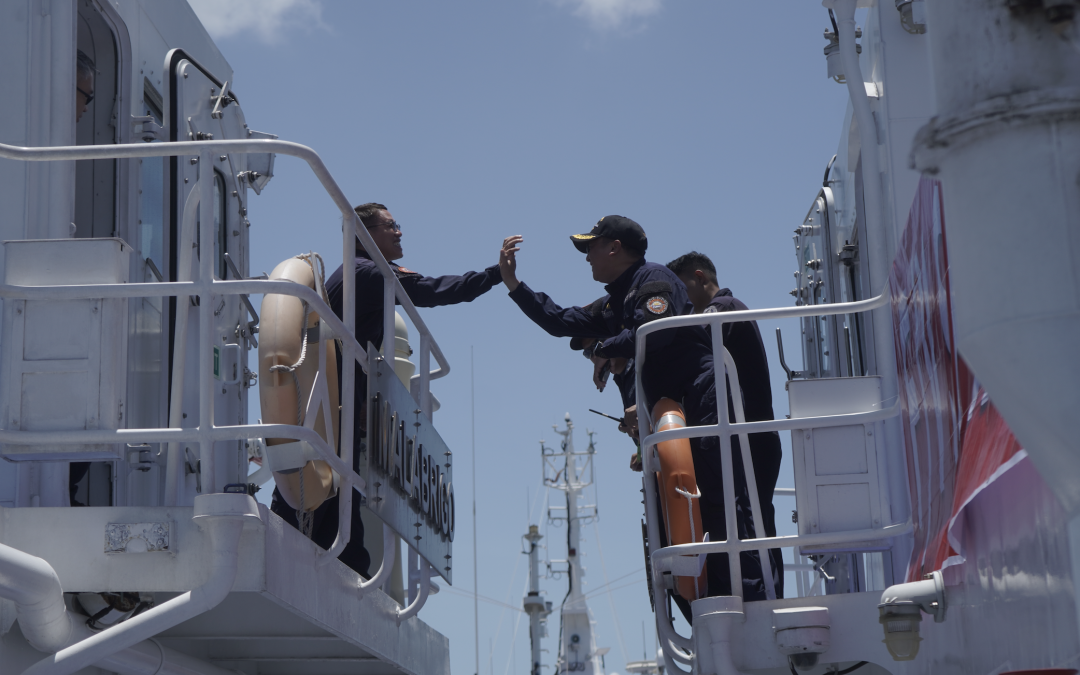CRIMARIO has officially entered its third phase, further deepening its support to countries across the Indo-Pacific, whilst now also expanding its reach to Central and all Latin America, even in the Atlantic Ocean, to potentially include some Caribbean countries.
Building interoperability amongst civilian administrations and military organisations
The project’s activities are strategically designed to support both civilian administrations and military organisations, including regional and national Maritime Operations Centres, with a key focus in strengthening partner countries’ capacity to share maritime information within and across national borders.
This is primarily achieved through tailor made training programmes that build critical skills in maritime domain awareness, interagency coordination, and collaborative responses to thematic threats. By equipping operators with IORIS, the project enhances early-warning capabilities and proactive risk management.
Maintaining readiness through exercises and interagency collaboration
To ensure skills are retained, CRIMARIO continues to implement a robust maritime exercise programme. These exercises engage national and regional organisations in realistic operational scenarios to test procedures, identify capability gaps, and refine standard operating procedures (SOPs). This fosters familiarity and trust among cross-border stakeholders—an essential element for effective joint maritime operations.
Targeted thematic workshops for cross-sector engagement
Complementing its training and exercise efforts, the project intends organising country-specific thematic workshopsthrough an interagency approach, involving both policymakers and practitioners, addressing:
- Counter-narcotics
- Maritime law enforcement and Legal Finish
- Maritime safety (Search and Rescue – SAR- , and MARPOL compliance)
- Humanitarian Assistance and Disaster Relief (HADR)
- Shipping industry practices and standards
- Port Safety and Security
- Illegal, Unreported, and Unregulated (IUU) fishing
- Protection of Critical Maritime Infrastructure
Supporting regional stability through information sharing
At the heart of CRIMARIO’s activities lies IORIS, a neutral and secure digital tool that enables national agencies and regional partners to communicate, coordinate, and respond to maritime incidents in real time.
IORIS’ unique Maritime Cooperation, Coordination, and Communication (MARCO3) capabilities continue to be enhanced, to provide advanced collaborative services, expanding its functionalities to better support a wide range of maritime operations.
During the forthcoming 30-month phase, mission-focused variants of the platform will be developed, allowing tailored functions on IORIS according to their specific operational requirements—such as ports, shipping, fisheries, counter-piracy, and SAR. Each specialised version will feature targeted tools, overlays, and forms designed to increase usability, reduce complexity, and enhance its appeal to both government agencies and the private sector.
“CRIMARIO offers a model of trusted, inclusive cooperation in an increasingly complex maritime environment,” said Martin Cauchi Inglott, Project Director. “IORIS is more than a platform — it is a shared space where countries build trust, respond together, and keep their seas safe.”
Results that speak for themselves
Over the last five years, CRIMARIO has established itself as a key actor in maritime capacity building:
- 237 IORIS courses delivered
- Over 3,000 officials trained
- Over 140 national and regional exercises conducted
- Over 150 agencies form some 57 countries engaged
- 6 HADR workshops delivered
- Over 180 online operational “community areas” created on IORIS to support live collaboration
From an operational perspective, collaboration through IORIS has already yielded significant results even though much remains unreported given the confidential nature of the business. Of those success stories reported since 2024, IORIS appears to have played a pivotal role in at least eight search and rescue operations, contributing to the saving of over 80 lives; efforts to combat IUU fishing and enabled more than ten trafficking-related operations—targeting drugs, cigarettes, and other illicit goods—with an estimated total value exceeding €250 million euro.
Moreover, in the past year, IORIS has been instrumental in supporting EUNAVFOR ASPIDES and ALINDIEN, the French Naval Indian Ocean Command, communicate with over 200 merchant vessels operating in the Red Sea. All this reflects the project’s strong commitment to operational effectiveness, inclusive cooperation, and long-term maritime resilience.
Promoting synergy through collective action
Maritime threats—whether trafficking, piracy, and/or terrorism; and distress situations linked or otherwise to environmental degradation—are inherently transnational and require a unified response.
By working in synergy with other EU-funded initiatives, international organisations, and relevant missions, CRIMARIO intends to continue actively building a cohesive and collaborative framework that maximises impact, reducing duplication, and supporting a comprehensive maritime security architecture.
As CRIMARIO expands its reach beyond the Indo-Pacific, it aims to cultivate partnerships that are not only technical but human—built on trust, cooperation, and a shared responsibility for securing the world’s seas.

